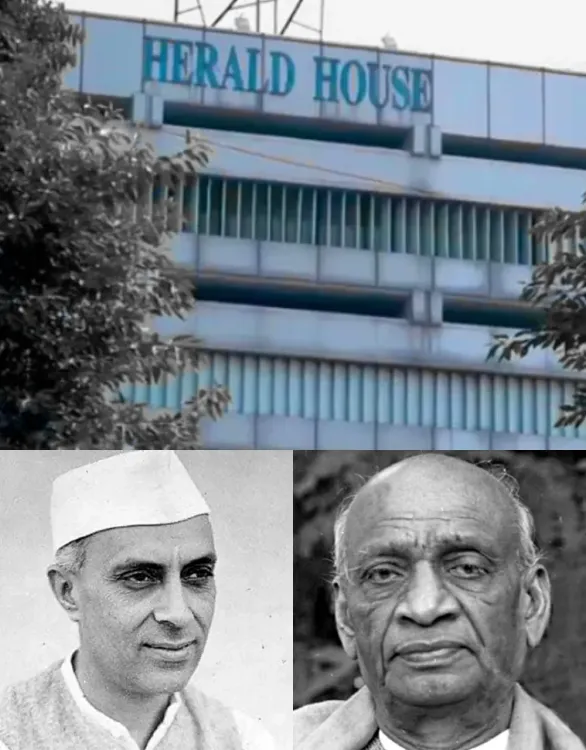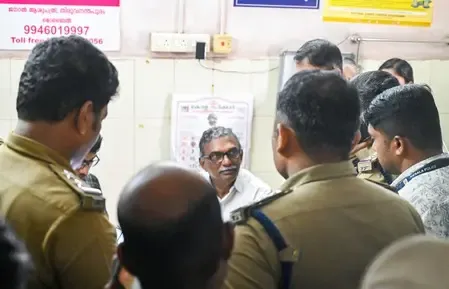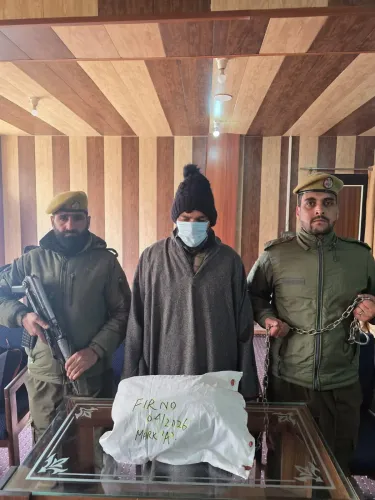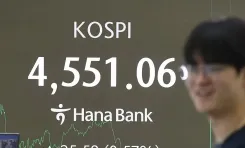The National Herald Controversy: Patel's Alarm and Nehru's Response

Synopsis
Key Takeaways
- Sardar Patel cautioned Nehru about the ethical implications of National Herald's fundraising.
- Patel's warnings about dubious financial dealings have resurfaced in contemporary political discussions.
- The letters reveal Patel's concerns over government influence and potential corruption.
- Nehru's responses were often vague, attempting to downplay serious concerns.
- Patel's correspondence reflects a pattern of entitlement and ethical compromise in politics.
New Delhi, April 17 (NationPress) An exchange of letters between Sardar Vallabhbhai Patel and Jawaharlal Nehru in May 1950, chronicled in the book Sardar Patel’s Correspondence, indicates that Patel voiced apprehensions to Nehru about utilizing the ‘National Herald’ for fundraising initiatives. These correspondences reveal that Patel warned Nehru of “the potential misuse of government influence in financial dealings” and recommended against accepting donations from “questionable” entities.
The historical exchange between Patel and Nehru has resurfaced amid political discourse, following the Enforcement Directorate's chargesheet against former Congress leaders Sonia Gandhi and Rahul Gandhi. The allegations of money laundering in the National Herald case have reignited interest in Patel’s early cautions regarding financial misconduct associated with the publication—warnings that are now remarkably pertinent.
Indeed, the National Herald has been embroiled in controversy since the inception of independent India. The letters exchanged between Patel and Nehru in 1950 are frequently cited to highlight that concerns regarding the paper’s financial operations and political exploitation were raised even then.
In 1950, Sardar Vallabhbhai Patel explicitly cautioned Jawaharlal Nehru about dubious fundraising practices and the ‘misuse’ of government apparatus to support the National Herald. These significant concerns highlighted Patel’s clear unease with the ethical and political ramifications of such actions. Despite the severity of the warnings, Nehru seemingly opted to disregard them.
Are Sardar Patel’s long-standing warnings proving to be prescient? This question reverberates through political discussions following the Enforcement Directorate's chargesheet against Sonia and Rahul Gandhi, accusing them of orchestrating a “criminal conspiracy” to appropriate properties valued at Rs 2,000 crore belonging to Associated Journals Ltd (AJL), the publisher of the National Herald. What began as a serious caution from one of India's eminent leaders in 1950 has, according to political analysts referencing Patel’s letters, now evolved into an allegedly extensive scandal that “underscores a legacy of alleged misuse of power and political entitlement”.
Sardar Vallabhbhai Patel raised alarms in a series of explicit letters to Prime Minister Jawaharlal Nehru. On May 5, 1950, Patel wrote to Nehru expressing grave concern over a Rs 75,000 donation to the National Herald from two individuals linked to Himalayan Airways. The airline had reportedly acquired a government contract for night air mail services by circumventing objections from the Indian Air Force. Observers indicate that this was an early indicator of “political favouritism and backroom dealings”.
Patel did not hold back. He pointed out that one of the donors, Akhani, was already facing multiple allegations of bank fraud. Even more disturbing was Patel’s accusation that Union Minister Ahmed Kidwai was exploiting his official position to gather funds for the Herald, including money from controversial businessmen in Lucknow like J.P. Srivastava.
Nehru’s reply, sent the same day, was “vague and dismissive”—trying to placate Patel without adequately addressing the core issues. He mentioned having asked his son-in-law, Feroze Gandhi, then General Manager of the Herald, to investigate the matter. According to an analyst, Nehru’s tone in the letter was non-committal, dismissing the matter as if it were an unfortunate misunderstanding.
Patel, undeterred, replied the very next day, May 6, 1950. He saw through the deflection and wrote to Nehru in detail, elaborating on how certain private companies and their shareholders were involved in the matter. Sardar Patel noted, “Some contributions did not come from those involved in running the department. Otherwise, to my knowledge, the number of contributions received was sufficient and involved other individuals as well. The transactions I have referred to are of a different nature. There is no element of charity in them.”
In his follow-up, Nehru once more “tried to distance himself from the paper and its finances”, asserting he hadn’t been involved with the National Herald or its fundraising for three years and had delegated the responsibility to a woman named Mridula. He acknowledged “some mistakes may have occurred” but continued to what many viewed as his attempt to “justify” the questionable transactions as part of a legitimate business endeavor, even referring to it as a matter of “loss and profit”—not charity.
This point was emphasized by BJP national spokesperson Sudhanshu Trivedi, who stated that on May 6, 1950, Jawaharlal Nehru wrote to Sardar Patel saying, “Herald is a good business proposition and its preference shares and debentures are not a bad investment.”
During Nehru's era, it was said that the investment made in the National Herald could be lucrative. This is considered a good business investment, so its shares or debentures cannot be deemed harmful, Trivedi noted, referring to the correspondence.
The implication is that from the outset, this investment was tied to profit, business, and property, he added. “Today, the Congress party should face this ethical dilemma: when this was always a business plan, how can it suddenly be associated with charity or donations made during the freedom struggle?” he questioned.
This marked the decisive moment for Patel.
In his final letter dated May 10, 1950, he clarified that the issue was about integrity, accountability, and the misuse of political authority. As Home Minister, he expressed profound concern over the ‘dishonesty’ surrounding the Herald’s financing and the questionable individuals involved.
He outright rejected Nehru’s defense, exposing the corruption at the heart of what was being portrayed as a legacy of the freedom movement.
Sardar Patel wrote, “In light of these events, I do not think there is any benefit in pursuing this matter further. I have already told you how I view these activities, and I doubt that if this happened in any other province and I had any connection to it, I would not accept this situation.”
According to Trivedi, this clearly indicates that he had grown disillusioned and did not wish to discuss it further. “Now, Congress should clarify what kind of sacrifice and dedication this was,” Trivedi posed.
According to political observers, Patel’s unwavering stance unveiled a deeper issue—a concerning pattern of entitlement, favoritism, and ethical compromise that would reemerge decades later. His ignored warnings now appear hauntingly prophetic.










